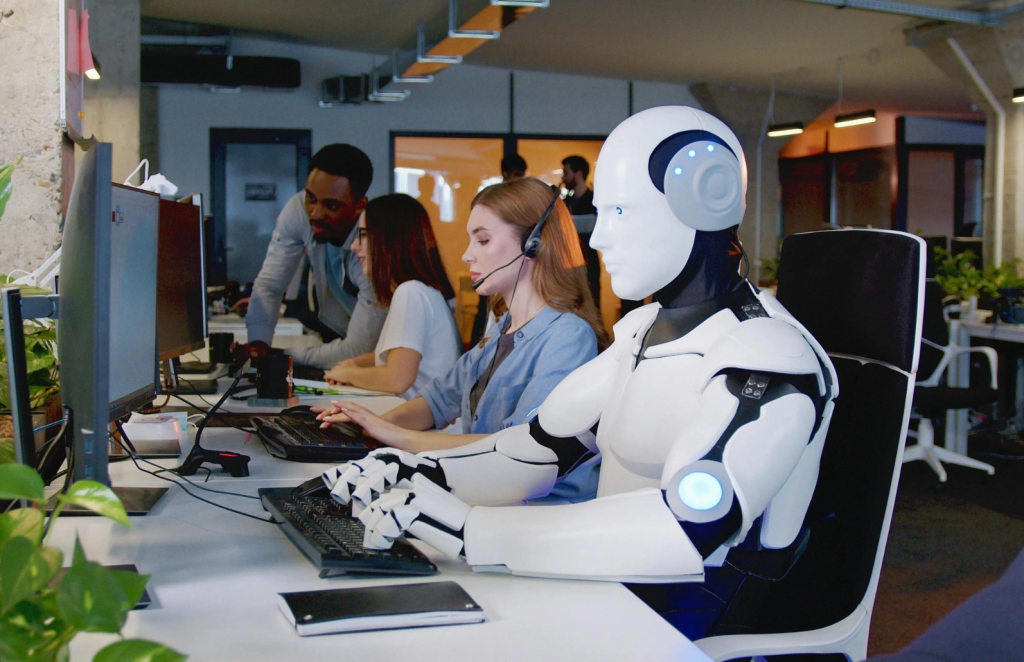Car Dealer Chatbot or Digital Assistant?

The term “chatbot” has garnered a somewhat negative reputation over the years, primarily due to early iterations that provided frustrating and limited user experiences. These older chatbots often relied on predefined scripts and tree structures, leading to rigid and impersonal interactions. Consequently, many users associate the term “chatbot” with inefficiency and frustration.
However, the landscape of conversational AI has drastically evolved. Today, advanced language models like OpenAI’s ChatGPT have revolutionised the way we interact with automated systems. These modern AI-driven solutions provide human-like conversations that are dynamic, empathetic, and efficient. The distinction between a traditional chatbot and a digital assistant is becoming increasingly significant.
Why the Negative Perception?
- Early Chatbots’ Limitations:
Early chatbots were often rule-based, operating within a fixed framework. Users had to navigate through rigid tree structures, which frequently led to dead ends and unsatisfactory responses. This inflexibility resulted in poor user experiences, creating a negative perception of chatbots. - Lack of Personalisation:
These early systems could not personalise responses based on user context or preferences. The interactions felt mechanical and disconnected, further reinforcing the negative sentiment.
The Evolution to Digital Assistants
- Human-Like Conversations:
Modern digital assistants, powered by sophisticated AI models, can understand and generate human-like text. They comprehend context, remember previous interactions, and provide coherent and relevant responses. This makes the interaction feel more natural and engaging, akin to conversing with a human. - Empathy and Efficiency:
Unlike their predecessors, today’s digital assistants can exhibit empathy. They are programmed to understand and respond to user emotions, providing a more comforting and supportive interaction. Furthermore, they can instantly access vast amounts of information, delivering accurate responses more quickly than a human can manually look up information. - 24/7 Availability:
One of the significant advantages of digital assistants over human agents is their availability. They can operate around the clock, providing consistent and reliable service without the constraints of human working hours. - Advanced Capabilities:
Modern digital assistants can handle complex queries and tasks. From booking appointments and managing schedules to providing detailed product information, these AI systems are far more capable than early chatbots.
Rethinking the Term “Chatbot”
Given these advancements, it might seem tempting to abandon the term “chatbot” in favour of “digital assistant.” However, it’s important to recognise that, fundamentally, these advanced systems are still chatbots at their core they engage in conversations with users. The key difference lies in how we perceive and utilise them.
- Adjusting Perceptions:
Instead of discarding the term “chatbot,” we should focus on reshaping the perception. Emphasise the technological advancements that distinguish modern chatbots from their predecessors. Highlight their ability to provide superior, human-like interactions. - Educating Users:
Educate users about the capabilities of contemporary chatbots. Demonstrate how these systems have transcended the limitations of early chatbots and can now offer efficient, empathetic, and highly personalised interactions. - Promoting Benefits:
Showcase the tangible benefits of using modern chatbots. Emphasise their ability to save costs, enhance customer satisfaction, and provide seamless 24/7 service.
Specific Benefits for Car Dealers
For car dealers, embracing these advanced chatbots or digital assistants offers significant advantages:
- Integration with Dealership Systems:
Modern digital assistants can seamlessly integrate with your dealership’s data and systems. They can answer inventory questions, schedule test drives or showroom appointments, and send leads directly to your LMS or CRM system. Additionally, they can book service appointments and display available time slots, with these appointments appearing directly in your workshop planning system. - Handling Specific Queries:
Digital assistants can provide accurate answers about specific cars available to order, leveraging the correct data from your systems. This ensures that customers receive timely and accurate information, enhancing their overall experience.
Introducing AutoChat
This is where AutoChat comes into the picture. AutoChat leverages the language model capabilities of OpenAI and connects with all necessary dealership systems. We offer a comprehensive AI website plugin for dealerships, known as AutoChat Web. Additionally, we provide a chat interface for dealership employees, called AutoChat PRO, helping them work more efficiently with a digital assistant at their disposal.
AutoChat is designed to be implemented quickly, with minimal effort required from the dealership. This ensures that you can start reaping the benefits of advanced AI technology without extensive setup or disruption to your operations.
Conclusion
The term “chatbot” may carry some historical baggage, but the technology itself has evolved tremendously. Today’s chatbots, or digital assistants, offer sophisticated, human-like interactions that surpass the capabilities of their predecessors. By adjusting our perception and educating users, we can embrace the full potential of these advanced systems and leverage them to transform customer interactions in the automotive industry.
Embrace the future of conversational AI with AutoChat—it’s time to see chatbots not as a relic of the past, but as powerful digital assistants that can revolutionise your dealership’s customer service experience.

